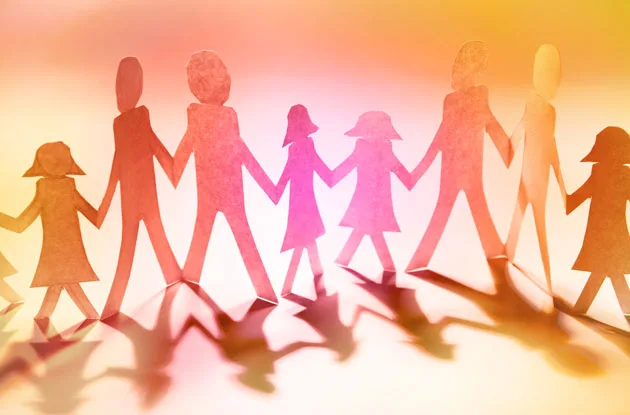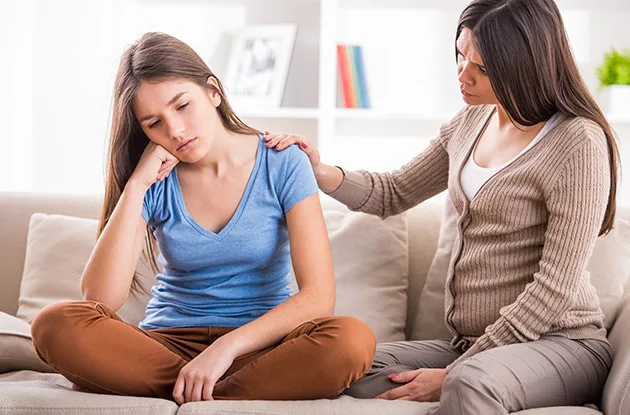Hope for Depression Research Foundation (HDRF) and founder Audrey Gruss hosted its annual public symposium “Teens, Social Media, and Mental Health” on May 8. The panel, moderated by Elyse Fox, founder of Sad Girls Club, was held in May in honor of Mental Health Month and included HDRF-affiliated researchers and psychiatrists as well as young adult and teen activists.
Speakers on the panel included Em Odesser, 17-year-old Editor-in-Chief and co-creator of Teen Eye Magazine, writers Scarlett Curtis and Philip Eli, doctors Alexandra Harris, M.D., P.h.D., Marianne Chai, medical director at New York Center for Living, and UCLA’s Dr. Yalda T. Uhls, author of Media Moms and Digital Dads. Louisa Benton, executive director of Hope for Depression Research Foundation, introduced and started off the panel by asking the question “How are smartphones impacting future generations’ mental health?”
The panel discussed both positive and negative aspects of interconnectivity, cell phone reliance, and social media networks on our culture and ‘mind brain health.’ They also answered questions from an audience of over 150 people including actors, teens, and their parents. Actors in the audience were Justina Adorno from ABC’s Grand Hotel, Matt Flynn from FOX’s Gotham, Robert Manzell from Netflix’s Iron Fist, and Alyssa Kempinski from HBO’s The Deuce.
The good and the bad of social media
The panel agreed that using social media a lot can harm self-esteem. An example of this trend is seen in the rise of the term “FOMO,” otherwise known as “Fear of Missing Out.” Teens are vulnerable to feeling this way when they are constantly exposed to what their peers are doing on social media.
“We should not judge our interiors by everybody else’s exteriors,” said Em Odesser according to a press release.
On the other hand, social media can also create a sense of community for teens who may feel isolated or out of place.
“If it wasn’t for social media, I would be far lonelier because, in a community that I don’t always feel comfortable in, I can text my best friends in other continents and feel better,” said Odesser.
Startling statistics
In the last five years, depression rates have risen by 33 percent in young people, and suicide rates in girls have risen by 65%. Many experts say this trend is linked to increased social media usage. Experts continue to the question, is social media causing depression or are kids turning to it because other factors are making them depressed?
Teen and young adult users who spend the most time on Facebook have a 66 percent higher rate of reported depression versus the 13 percent of those who spend the last amount of time, according to recent studies.
What can we do?
For teens, it can be close to impossible to realize when social media is doing more harm than good to your mental health. Psychiatrist Dr. Chai urged the teens in the audience to constantly ask themselves questions and to check in on themselves when using social media. If something online is making them feeling upset, they should take a break for a few days and talk to a trusted adult about their feelings.
Parents need to get involved where possible because adolescent brains are still developing and can lead to impulsive decisions and posting.
“We need to teach kids how to have a positive digital footprint,” said Dr. Uhls. “Parents need to be role models and have a positive digital citizenship.”
Dr. Uhls encouraged parents to take advantage of teachable moments, for example a social media scandal in the news.
While some of these statistics may be scary, social media is here to stay and there are countless positives involved with raising your teen in the digital world. Dr. Harris advises parents, family, and friends to pay attention to warning signs and, if you see an abrupt change in your teen’s social media usage, check in.
Get help
- 911 – If you see suicidal messages or disturbing content, 911 should be the first thing you do, before going through social media sites reporting process.
- TXT 4 HELP, Safe Place
- Suicide Prevention Life Line: 1-800-273-8255 or text 741741
- 7 Cups
Image: Hope for Depression Research Foundation (HDRF) public symposium “Teens, Social Media, and Mental Health” panelists. Left to right: Em Odesser, Elyse Fox, Scarlett Curtis





















